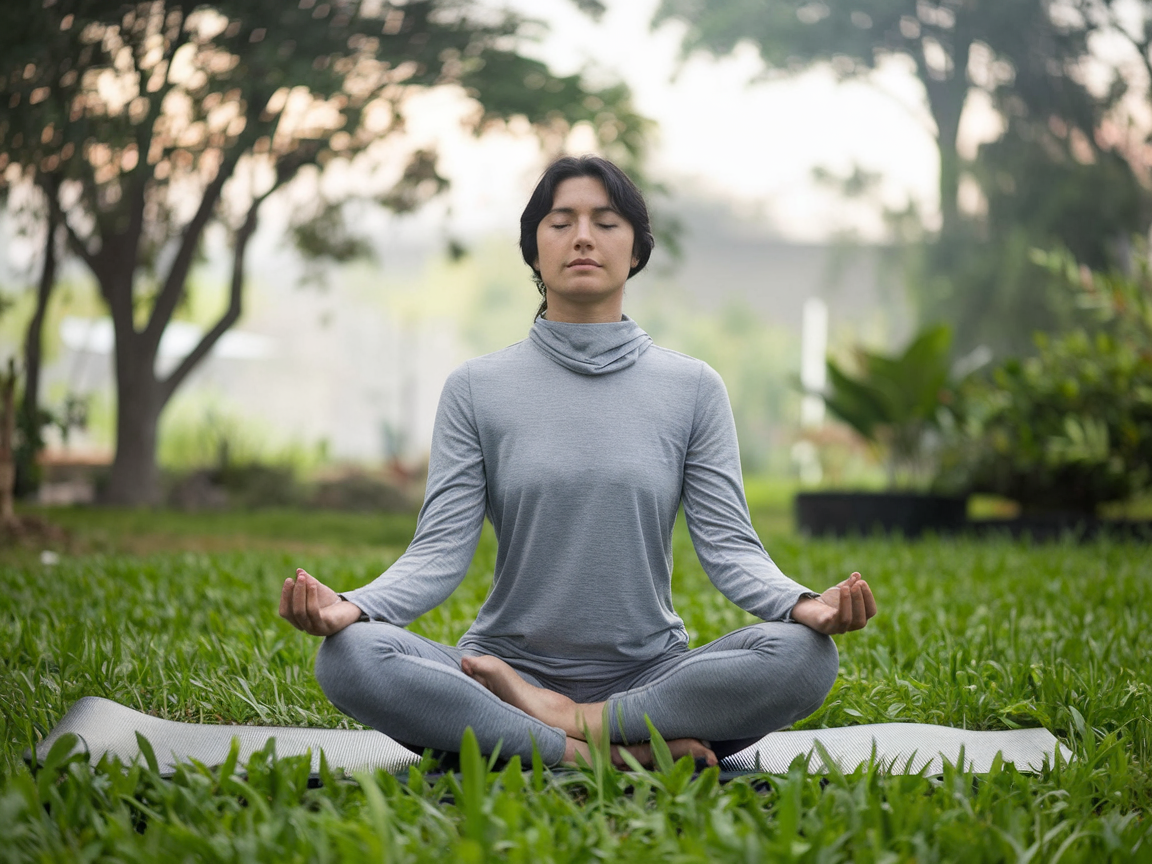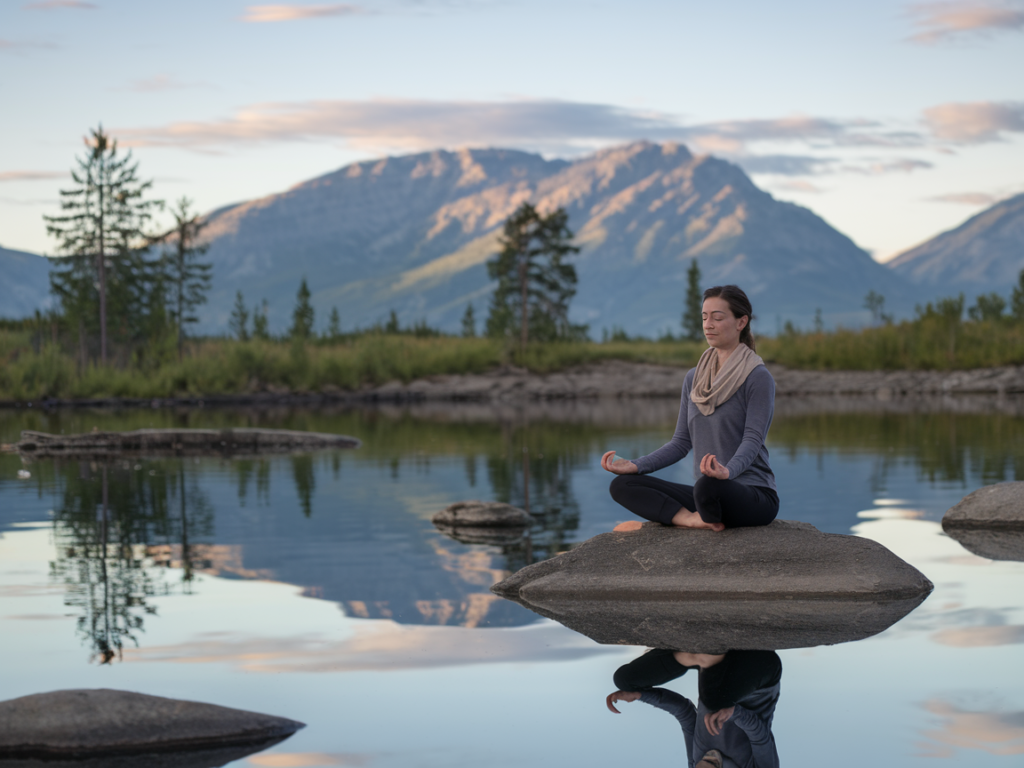Stress Reduction Techniques: Mindfulness, Meditation, and Yoga Practices

"Discover the power of mindfulness, meditation, and yoga to transform stress into serenity."
Introduction
In the modern world, stress has become a prevalent issue that affects individuals of all ages. While occasional stress is a natural part of life, persistent stress can lead to serious health problems, including anxiety disorders, cardiovascular issues, and weakened immune function. Thankfully, there are effective techniques to manage stress, including mindfulness, meditation, and yoga. This article explores these practices in detail, highlighting their unique benefits and offering practical tips for incorporating them into your daily routine.
Understanding Stress
Stress is the body’s natural response to perceived threats, triggering the release of hormones such as cortisol and adrenaline. While this response can be helpful in short bursts, chronic stress can disrupt bodily functions and lead to long-term health complications. Recognizing stressors and implementing coping strategies are essential for maintaining mental and physical health.
Mindfulness: Cultivating Present-Moment Awareness
What is Mindfulness?
Mindfulness is the practice of focusing on the present moment without judgment. It involves paying attention to your thoughts, feelings, and sensations, promoting a sense of awareness and acceptance.
Benefits of Mindfulness:
- Enhances Emotional Intelligence: Mindfulness can improve emotional awareness, helping individuals respond to stressors more effectively.
- Boosts Resilience: Regular practice fosters resilience, enabling individuals to bounce back from challenges and maintain emotional balance.
- Improves Decision-Making: Mindfulness encourages thoughtful responses rather than impulsive reactions, leading to better decision-making.
How to Practice Mindfulness:
- Mindful Observation: Spend time in nature, observing your surroundings without distractions. Notice the colors, sounds, and textures around you.
- Mindful Journaling: Write down your thoughts and feelings without filtering or judging them. This practice can help clarify emotions and reduce mental clutter.
- Mindful Walking: Engage in a slow, deliberate walk, focusing on each step and your connection to the ground beneath you.
Meditation: Deepening Inner Peace
What is Meditation?
Meditation is a practice that involves training the mind to achieve a state of tranquility and clarity. It can be performed in various ways, from guided sessions to silent contemplation.
Benefits of Meditation:
- Promotes Emotional Stability: Meditation helps regulate emotions, reducing the likelihood of mood swings and emotional outbursts.
- Enhances Self-Compassion: Regular meditation fosters a sense of self-acceptance, allowing individuals to treat themselves with kindness.
- Increases Creativity: Meditation can enhance creative thinking and problem-solving abilities by quieting the mind and allowing new ideas to surface.
How to Meditate:
- Find Your Space: Choose a comfortable spot where you won’t be disturbed. Create a calming environment with soft lighting or soothing sounds.
- Set a Timer: Start with short sessions, gradually increasing the duration as you become more comfortable. Aim for 5-10 minutes initially.
- Explore Different Techniques: Try various forms of meditation, such as loving-kindness meditation, visualization, or mantra repetition, to find what resonates with you.
Yoga: Harmonizing Body and Mind

What is Yoga?
Yoga is a holistic practice that combines physical postures, breath control, and meditation. It aims to unify the body, mind, and spirit, promoting overall health and well-being.
Benefits of Yoga:
- Enhances Physical Health: Regular yoga practice improves flexibility, strength, and posture, contributing to overall physical health.
- Reduces Anxiety and Depression: Yoga has been shown to decrease symptoms of anxiety and depression by promoting relaxation and mindfulness.
- Fosters Community: Participating in group yoga classes can create a sense of belonging and support, enhancing mental well-being.
How to Practice Yoga:
- Begin with Simple Poses: Start with beginner-friendly poses like Cat-Cow, Warrior I, and Savasana. Focus on aligning your body and breathing deeply.
- Incorporate Breathwork: Synchronize your breath with movement. Deep inhalations and exhalations can enhance relaxation and focus.
- Use Online Resources: Consider following online classes or apps that offer guided sessions tailored to different skill levels.
Integrating Techniques into Daily Life
To maximize the benefits of mindfulness, meditation, and yoga, consider integrating these practices into your daily routine:
- Create a Morning Ritual: Start your day with a combination of mindfulness exercises, meditation, and gentle yoga stretches to set a positive tone.
- Use Breaks Wisely: Take short breaks throughout the day to practice mindfulness or do a quick meditation session. Even a few minutes can make a difference.
- Engage in Evening Wind-Down: Incorporate relaxation techniques before bed, such as gentle yoga stretches and meditation, to improve sleep quality.
Conclusion
Stress is an inevitable part of life, but by embracing mindfulness, meditation, and yoga practices, individuals can cultivate resilience and promote emotional well-being. These techniques not only help reduce stress but also enhance overall health, leading to a more balanced and fulfilling life. Start small, be consistent, and witness the transformative effects these practices can have on your mental and physical health.







